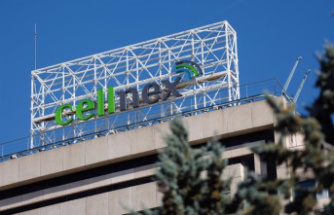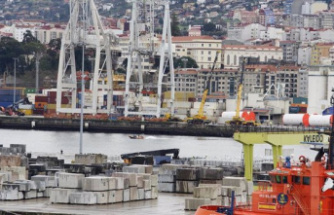At a cost of around $150 million, “The Great Wall” is by far the biggest U.S.-China co-production in history.
And it looks it. Directed by Zhang Yimou — China’s most renowned filmmaker, best known for his searing historical dramas and elegantly staged martial arts films, not to mention the eye-popping opening and closing ceremonies of the Beijing Olympics — it’s as massive a production as the nation’s 13,000-mile-long, ancient fortification it celebrates.
Set around 900 years ago, the now Chinese-owned, Burbank-based Legendary Pictures production features big armies, bigger sets, imposing and imaginative 12th century military technology and hordes of ravenous CG Tao Tei, mythical Chinese lizard bearcats that, in this fanciful narrative, the wall was built to impede from eating the country.
The predominantly English-language movie also boasts a cast of veteran Chinese superstars such as Andy Lau and Hanyu Zhang, as well as up-and-coming talents such as Jing Tian, who plays Lin Mae, commander of a gracefully acrobatic, all-female army squad.
Then there’s Matt Damon. He plays Irish mercenary William Garin, come to Asia with his Spanish comrade-in-arms Pero Tovar (“Game of Thrones’” Pedro Pascal) to score some of that invaluable new Chinese concoction, gunpowder.
That hoped-to-be movie star box-office blessing has also proved a bit of a curse. More on that later, but first director Zhang — who came to international prominence with such formally audacious, sexually charged politico/psychodramas as “Red Sorghum,” “Ju Dou” and “Raise the Red Lantern” and later reinvented himself as the contemporary king of arty Asian action with “Hero,” “House of Flying Daggers” and “Curse of the Golden Flower” — on his stab at international megamovie making.
“This, indeed, is my first movie to have this many monsters in it — and, also, so many visual effects shots,” Zhang confirms, lightly chuckling, through an interpreter. “But this is also the first time I’ve made a Hollywood blockbuster, what we call a popcorn movie. The story actually came from American writers, and when my agents sent it to me, they weren’t quite sure I’d even consider it. So I looked at it and there were certain elements that actually interested me. I’d never tried this before, and I always like to try something new, so why not give it a shot?”
Used to controlling every aspect of his movies from script to final edit, Zhang came onto “The Great Wall” project close to last-minute. Its scenario, credited to six Hollywood writers including such respected names as Edward Zwick and Tony Gilroy, was essentially set in stone, though Zhang was able to make a few tweaks he felt gave it more period Chinese authenticity. Tons of special-effects work was already locked in too, but without too many visual descriptions, the script permitted Zhang to indulge his rich and colorful aesthetic inclinations along huge, purpose-built wall sections constructed on China’s Yellow Sea coast.
That and much, much more made making the film a staggering assignment. Perhaps the toughest part, though?
“It is quite challenging directing a movie that I don’t speak the language of,” Zhang admits. “As a director, you always care about character development and minute changes and flow, and it’s really hard to do something like that when you’re directing in a language that you do not understand. I relied heavily on a good script and good actors. We were very fortunate to have Matt Damon; he was able to give me a lot of advice and a lot of pointers. He showed me a lot of choices and was able to explain to me all the little nuances to put in.
“Ultimately, if you want to direct a popcorn movie or a monster flick, that will still work. But if you want to direct something really deep and personal, it’s going to be very difficult to do if it’s not your native tongue.”
It’s not only the English that has rankled some Asian-American critics of the project, but the prominence of Damon’s role in a film about such a fundamentally Chinese subject. “Fresh Off the Boat” star Constance Wu, for one, slammed the American star’s casting last summer for perpetuating “the racist myth that only a white man can save the world.”
“When the actress wrote about Matt Damon, it really wasn’t about the movie at all,” Zhang responds. “She didn’t see the movie and didn’t understand what it was about. I felt that was really unfair to Matt, so I published a response. This movie had nothing to do with that. It’s about people coming together and collaborating. It’s not about a white savior saving China.
“The Chinese reaction was completely different,” Zhang adds. “The movie came out a couple of months ago in China, and they were more worried there about their movie stars — and the movie has a lot of them, and they each have a lot of fans. They were all fighting, saying their character should have more screen time or dialogue. That was more the discussion, and some said that the story could be a little more complex so it could bring more stuff to the United States. I felt, one step at a time. There is so much Chinese culture, we’ve got to simplify a little bit in order to bring something to another culture. But you realize, the Chinese reaction has nothing to do with whitewashing.”
That said, the Chinese box office reaction hasn’t exactly been overwhelming either. While “Great Wall” boasts a superficially impressive worldwide gross of over $220 million — mostly from China — on the eve of its North American release, it’s well behind such far less costly Chinese hits as “The Mermaid” ($554 million worldwide) and “Monster Hunt” ($385 million).
In addition, negative criticism of the film grew so severe that the communist government issued statements warning reviewers that they were damaging an important national industry. Zhang writes off the critics as mostly sensationalist bloggers seeking attention by being as nasty as they can. But what to make of last month’s announcement that Legendary’s founder and CEO Thomas Tull was stepping down? Surely his project “Great Wall’s” performance had something to do with that.
Whatever ultimately happens with this movie, though, Zhang is convinced that the two largest — and richest — moviegoing countries in the world will continue working together in big ways.
“It’s part of globalization,” he reckons. “As the world gets smaller and everybody gets closer to each other, we understand each other’s markets. I’ve noticed that American blockbusters have started incorporating Chinese elements; the best example is ‘Rogue One’ casting two Chinese actors.
“But ‘The Great Wall’ is actually one of the most meaningful collaborations. This is the first time that a Hollywood studio has really collaborated with China in the whole sense of the word. Up until this point, it’s been hiring Chinese actors, which we feel is just cameos. Hopefully, there’ll be more opportunities like this in the future. Of course, everybody’s waiting to see how well ‘The Great Wall’ does.”
Zhang’s in no hurry to continue his own future in blockbuster co-productions, though.
“Right now, I’m going to go back and make movies my old way,” he says. “Stories like this are really hard to come by. To find a story that’s likable to both cultures is not easy. So I think it’s better to just do what I used to do until another really good script comes along. I mean, in the time it took to make ‘Great Wall,’ I could have made two Chinese movies.”
Our editors found this article on this site using Google and regenerated it for our readers.













